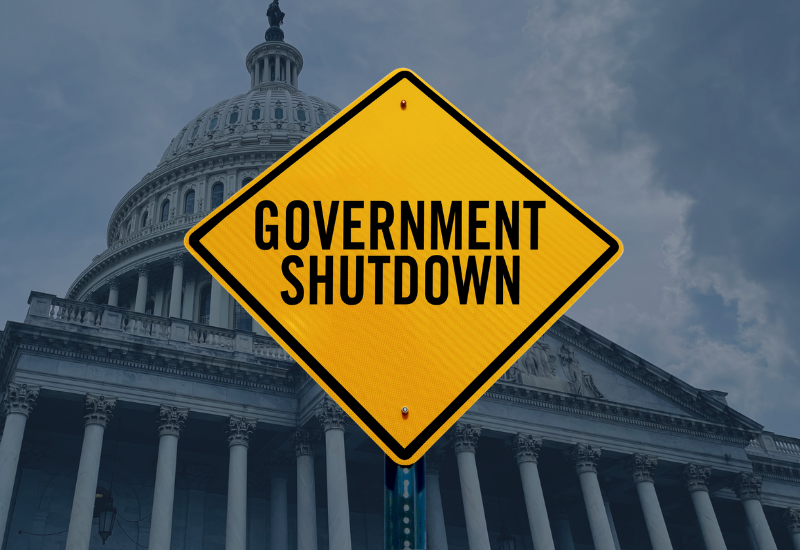October 2025 Government Shutdown Impact on Taxpayers
- October 2, 2025
- Posted by: CKH Group
- Category: Current Events

A quick breakdown on how the 2025 government shutdown impacts taxpayers in the US
A government shutdown began October 1, 2025, after Congress failed to pass a funding bill. Here’s what you need to know.
Key Takeaways:
-
- IRS remains open for five days thanks to backup funding from the Inflation Reduction Act.
- After five days, expect major delays in refunds, audits, and IRS support if the shutdown continues. Phone support and audit resolution may slow down.
- Tax deadlines are unchanged – taxpayers must still file and pay on time, and will not receive relief even if IRS delays occur (penalties and interest still apply)
- 2026 tax season preparation is at risk, especially with new tax law changes.
- Fewer protections for hardship cases, identity theft, and complex issues during the shutdown.
Edit as of October. 9, 2025:
As of Wednesday, the sixth business day of the government shutdown, the IRS has initiated an agency-wide furlough.
The initial five-day contingency plan did not address an extended shutdown, but a new plan released on October 8 now outlines operations through April 30, 2026, which covers the upcoming filing season. Under the updated plan, 53.6% of IRS employees (approximately 39,870 of 74,299) will remain working in a limited capacity, primarily within Taxpayer Services, Small Business/Self-Employed, Information Technology, Criminal Investigation, and Large Business and International divisions.
The Taxpayer Advocate Service (TAS) has confirmed all offices are closed, with no staff available for assistance. It is very important to know that even with offices closed, tax deadlines are still in place. Work with your accountant to determine any actions that need to be taken- but be aware that you will likely not be able to get in contact with the IRS.
IRS impact
While some federal agencies have paused operations, the IRS has enough funding to stay open for the first five business days. During this time, returns will still be processed, audits will continue, and IRS phone lines will be staffed.
If the shutdown lasts beyond five days:
-
- The IRS may furlough employees, limiting the agency’s ability to help taxpayers.
- Expect refund delays, slower processing of returns and payments, and longer wait times for help.
- Audit resolutions and notice responses may stall, leaving taxpayers in limbo.
This mirrors what happened during the 2018–2019 shutdown, which took the IRS months to recover from. The National Taxpayer Advocate also warns that during a prolonged shutdown:
-
- It will be harder to assist with hardship cases
- Identity theft victims may see delays in getting help
- Broader systemic problems may go unresolved
Important: Deadlines Still Apply
Even if IRS operations slow down, you must still meet all tax deadlines:
-
- Extended 2024 tax returns are due October 15, 2025.
- Tax-exempt organizations have a November 17, 2025 deadline.
IRS delays do not pause interest or penalty accrual – missing your deadline can still cost you. Unlike federal employees, taxpayers don’t get a break during shutdowns:
-
- You must still file and pay on time
- Interest and penalties will still apply, even if the IRS takes longer to respond or process your return
This can be especially frustrating for those waiting on refunds or trying to resolve issues. And, as noted, if the shutdown continues, it can mean slower support for you. So if you have any current concerns, you should act fast to get in touch with your accountant.
2026 Tax Season
The IRS is also preparing for the 2026 tax season, which includes major changes from the One Big Beautiful Bill Act, signed in July 2025. These changes require updated forms, systems, and guidance – all of which could be delayed if IRS staff are furloughed, potentially leading to a chaotic 2026 filing season.
CKH Group will update on any further impacts to next year’s tax season as they become available.
What Taxpayers Should Do Now
To avoid complications, especially if you filed your extension and need to meet the October 15 deadline follow these steps:
-
- File early to reduce risk of delay
- E-file – it’s faster and less likely to be delayed
- Pay on time – don’t wait, even if service is slow
- Keep records of all communications, payments, and filings
- Work with a tax professional for help navigating new laws and potential delays
CKH Group is here to help. Our tax experts can guide you through potential IRS delays, audit complications, or new legislation impacts. Whether you’re an individual or business, our experienced team is ready to support you with proactive tax strategies and representation.
Visit our Tax Services page or Contact Us to connect with a CKH Group advisor today. You can also call us at 1-770-495-9077 or email us at [email protected].
The above article only intends to provide general financial information and is based on open-source facts, it is not designed to provide specific advice or recommendations for any individual. It does not give personalized tax, financial, or other business and professional advice. Before taking any form of action, you should consult a financial professional who understands your particular situation. CKH Group will not be held liable for any harm/errors/claims arising from the articles. Whilst every effort has been taken to ensure the accuracy of the contents, we will not be held accountable for any changes that are beyond our control.
